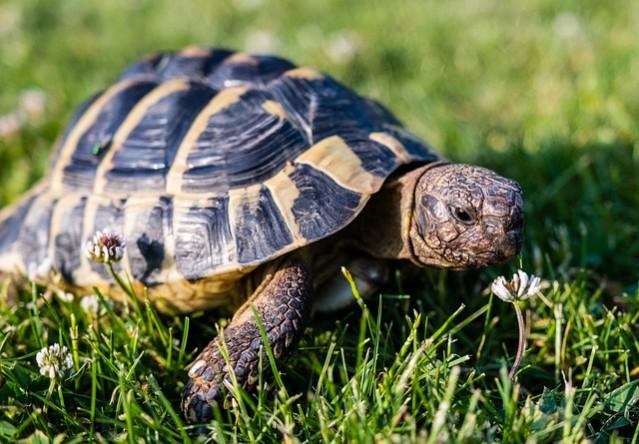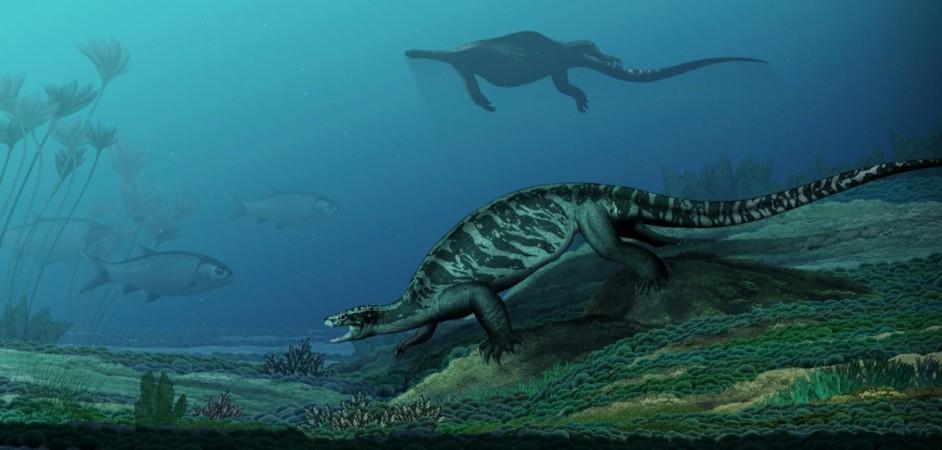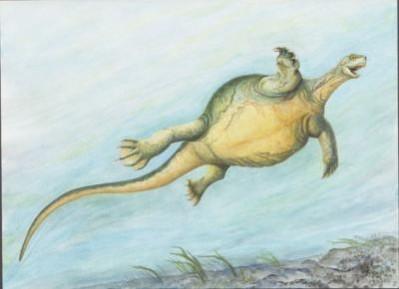
Turtles are one of the most exotic animals in the world. There are so many species of them; however, many of them are facing the danger of extinction. While different animals are known for different features; a turtle's iconic feature is most definitely its shell. However, that wasn't always the case. Recently, the scientists have discovered a set of fossils in China, which exposes the fact that some ancient turtles never grew any shell.
According to the paper published recently, researchers have discovered an early species of turtles called Eorhynchochelys sinensis. These animals existed on earth about 228 million years ago and they were actually gigantic in size -- six feet long. The turtles, which have been given the nickname "dawn beak turtle," had a hardened beak and flat body. All these are in line with what comes to mind when we think of a turtle, however; those humongous, ancient turtles didn't have a single shell on their bodies.

As the scientists explain, these pre-historic creatures loved to be in water but they never developed the hard outer shells like the modern turtles. However, it raises questions as those ancient turtles appeared to have a huge, flat and soft body, which could have benefitted from a hard covering.
What is interesting to note here is that the other early turtle species that the scientists have found seemed to have shells but no beaked jaws. On the other hand, the dawn beak turtles had a beak but no shell; while the modern turtles have all of these features. This points towards the fact that the evolution of turtles is more complicated than previously thought.

"This impressively large fossil is a very exciting discovery giving us another piece in the puzzle of turtle evolution. It shows that early turtle evolution was not a straightforward, step-by-step accumulation of unique traits but was a much more complex series of events that we are only just beginning to unravel," said the lead author of the paper, Nick Fraser.
The findings have been published in Nature.

















